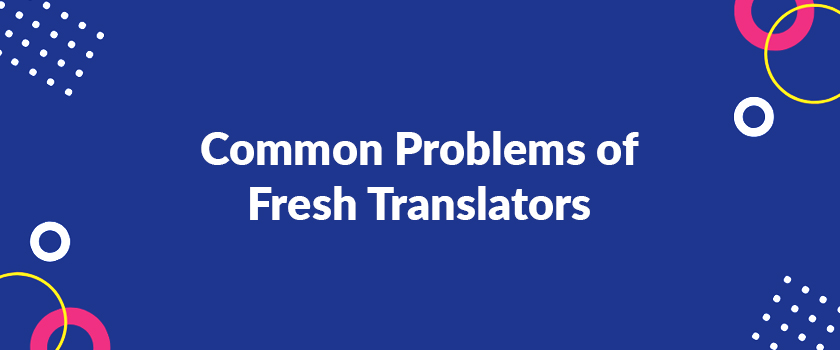Translation actually is kind of hard nut to crack, even for those who have a good command in languages. Being a good translator is a long journery, with twisted lanes and steep climbs. As the saying goes, the starting is the hardest. As a fresh translator myself, I here want to point out some problems which are commonly seen.
The first would be Word to Word translation. It may be called the quick in localization, which requires to minimize the translation traces. But usually the fresh translators feel hard to make some sentences look native to native people. Most of the they have no choice but reduce to Word to Word translation.
Examples:
A. Supervisor Bill Postmus tried to make the best of it all in his invocation: “Thank you for taking us out of the difficult times that we’ve had in the past, Lord.”
version 1: 行政官员比尔·伯斯特默斯充分利用当前形势在祷告中表示:“感谢你使我们走出曾经有过的艰难时期,上帝。”
version 2: 县管委会委员比尔·伯斯特默斯在祷告中借机表示:“上帝,感谢你使我们摆脱过去的艰难时期。”
Analysis: In this sentence, the phrase “make the best of ” certainly can be translated into “充分利用” in the version 1. Yet problem rises. It would be difficult for the Chinese to accept this sentence. Then we try to polish it and change the translation into “借机”. Isn’t it much better now? All the same, the “take us out of ” needs to be localize into “摆脱”.
Read Also: Two Common Questions for a Fresh Translator
B. Just as good character comes from the bottom up , so does a good society. This is why the idea, and not the actual policies, of clamping down on anti-social behaviour builds on a genuine insight .
version 1: 好的品德要从细微末节做起, 一个良好的社会也是这样。这就是取缔反社会行为的想法(而不是实际政策)在于真正的自我省悟 的原因所在。
version 2: 正如良好的品格要从基础抓起 ,一个良好的社会也是如此。这就是打击反社会行为的想法,而非实际举措,是建立在真正的洞察力 基础上的原因。
The second problem is always at a loss facing long sentences. The only way to overcome it is to fall in love with it. Get to know it, understand it, finally learn the beauty of it.
To identify the subject, predicate, object and other segments; to learn some approaches (顺译和逆译) which often are applied in translating long sentences. These would help you a lot.
Examples:
A. Applied science, on the other hand, is directly concerned with the application of the working laws of pure science to the practical affairs of life, and to increasing man’s control over his environment, thus leading to the development of techniques, processes and machines.
应用科学涉及应用上的问题。他所研究的是如何将纯科学的工作定律应用到实践生活中去,应用到如何加强人类对周围环境的控制,这样就会促进新技术、新工艺和新机器的产生。(顺译)
B. In reality, the lines of division between sciences are becoming blurred, and science again approaching the ‘Unity’ that it had two centuries ago—although the accumulated knowledge is enormously greater now, and no one person can hope to comprehend more than a fraction of it.
虽然现在积累起来的知识要多得多,而一个人也只可能了解其中的一部分,但事实上,各学科之间的界限却变得模糊不清,科学在此和两百年前那样为‘单一整体’。(逆序)



